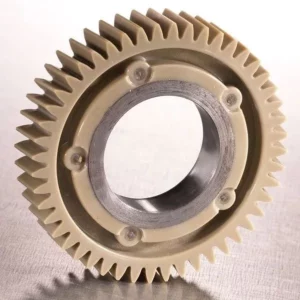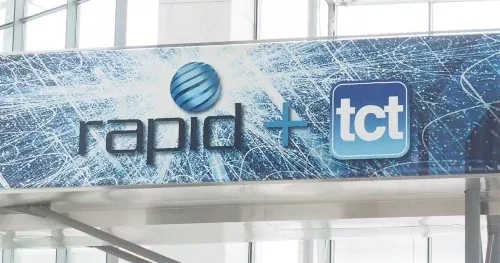RAPID +TCT is without doubt the premier 3D Printing conference and trade show in the nation. But this year something was different. Yes, the latest, greatest additive manufacturing innovations were at the forefront of discussions. Of course, industry gurus gave their usual predictions about the future of the industry. But something had changed.
RAPID in 2019 had emerged from an expo for start-ups, inventors and new technologies to a true industry trade show of significant scale. Part of this may have been due to the entry into the marketplace of big players like HP, GE and GM. But also the startups are now in the next stage of their development with bigger presence both in terms of products and space at the show. And of course, mainstream users are starting to catch on to the possibilities created by additive manufacturing.
Ever evolving to meet customer needs, Potomac added 3D Printing to its toolbox about 7 years ago in order to complement our subtractive manufacturing capabilities like laser and CNC micro-machining. Different methods of processing are required for a wide range of materials from organic polymers like Kapton to glass and silicon and have unique advantages for each specific application. No one tool is the right choice for the job 100% of the time making Potomac’s early adoption of new machines optimal to meet new fabrication challenges.
Materials for 3D Printing

Until today, materials for 3D Printing were quite limited. Since a large portion of our work is in the biotech, medical device and microfluidics fields, material limitations for these applications were a severe drawback of additive manufacturing options. At RAPID, several new materials were introduced that expand 3D Printing possibilities.
Eco-friendly filament manufacturer 3D PrintLife has two new interesting materials specific to the medical market: PEEK and PAPC.
PEEK is a semi-crystalline thermoplastic with excellent mechanical and chemical resistance properties that are retained in high temperatures. The advanced biomaterial is often used in medical implants, as well as for aerospace and electronics applications.
Polyamide Polyolefin & Cellulose (PAPC) filaments produce 3d printed fully implantable FDA compliant bone replacements. With properties so similar to human bones, PAPC makes an ideal choice for orthopedic preoperative models to aid pre-surgical simulation, assessment, training & planning. We’re also excited that PAPC parts can be laser machined to enhance designs.
Polyamide is one of our favorite materials for laser micromachining. Our Excimer laser wavelengths can machine this organic polymer with little or no thermal damage resulting in beautiful cut quality and reduced post-processing. We were excited to see that Polymaker is now producing a polyamide/nylon blend that we are anxious to try out.
3D Printing a part that we can then micro-machine would be a breakthrough in this material.
Hopefully the advent of new 3D Printing materials will expand Potomac’s offerings in additive manufacturing, especially in our core medical markets.


